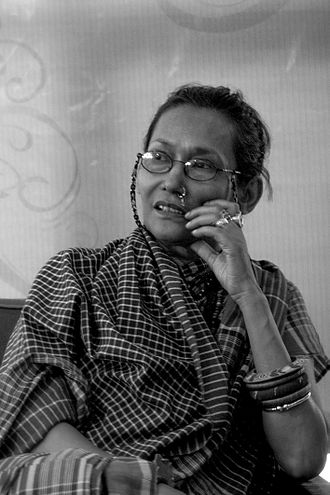Discover Your Roots
SIGN UPDiscover Your Roots
SIGN UPBibi is a female name of English origin, meaning "Various - See Notes." It is a versatile name often used as a given name, nickname, and even a surname. The name has been associated with notable individuals across various fields, including entertainment, sports, and politics. Bibi has been used as the given name for influential figures such as fashion designers, military leaders, and social workers. Additionally, it has also been employed as a surname for individuals in politics, music, and activism. The name has also been featured in fictional works and holds significance in cultural references, such as the portrayal of a lioness in the BBC series "Big Cat Diary." Overall, Bibi is a diverse name with a rich history and widespread usage across different domains.

Bibi Besch (1942–1996) was an Austrian-American actress known for her work in film, television, and stage. She gained recognition for her portrayal of Dr. Carol Marcus in the iconic science fiction film Star Trek II: The Wrath of Khan (1982). Throughout her career, Besch delivered notable performances in a range of films, including Who's That Girl (1987), Steel Magnolias (1989), and Tremors (1990), and appeared in television productions such as The Day After (1983) and The Jeff Foxworthy Show. With a prolific career spanning over 100 television and film credits, she received two Primetime Emmy Award nominations. Besch's early TV experience came from daytime soap operas, and she later ventured into primetime soaps and guest appearances on various television series. Her talent and versatility were evident in her work until her passing in 1996 at the age of 54 due to breast cancer. Bibi Besch's legacy continues to be celebrated in the entertainment industry.

Bibi Russell, born in 1950 in Chittagong, Bangladesh, is a renowned fashion designer and former international model. After graduating from the London College of Fashion in 1975, she embarked on a successful modeling career, working with prestigious names such as Yves Saint Laurent and Karl Lagerfeld. In 1994, she returned to Bangladesh and established Bibi Productions, incorporating indigenous Bengali cultural elements into her designs and empowering rural communities by employing 35,000 weavers. Russell's influence extended beyond fashion, as she organized pioneering fashion shows in Europe with UNESCO support and showcased her collections at prominent events such as the India Runway Week. Her work has garnered numerous accolades, including the Bangladesh National Film Award for Best Costume Design in 2009, the Cross of Officer of the Order of Queen Isabella, and titles such as Fellow of Bangla Academy and Artist for Peace by UNESCO. With her dedication to promoting cultural heritage and empowering communities, Russell continues to make a significant impact in the fashion industry and beyond.

Bibi Dalair Kaur was a prominent figure in Sikh history during the 1700s. She is renowned for leading a group of 100 Sikh women in resistance against the Mughals at the Battle of Chamkaur on December 6, 1704. Despite her bravery, she tragically lost her life in the battle and is revered as a martyr among Sikhs. Her courageous actions have left a lasting impact on Sikh history, and she continues to be celebrated for her unwavering determination and spirit. For those seeking inspiration from historical figures who stood up for their beliefs and fought for justice, Bibi Dalair Kaur remains a powerful symbol of strength and resilience.

Bibi is a versatile name that holds significance in various cultures and fields. It is a South Asian title for women, the title of an EP by Bibi Zho in 2006, and even the name of a Czechoslovakian aircraft from the 1930s. Additionally, Bibi is associated with a railway station in Chitose, Hokkaidō, Japan, and a Korean legendary creature called Yongno. It also holds significance in the Romani culture as a religious holiday and in the realm of education as an abbreviation for Bilingual–bicultural education (BiBi), particularly in deaf education programs. Furthermore, it is a sub-unit in the media-mix project Love Live! This diverse array of associations showcases the widespread influence and relevance of the name Bibi across different domains. For related topics, one may also explore BB, Bebe, Beebe, and Beebee.

Bibi de Vries, born on March 15, 1963, in Egmond aan Zee, North Holland, is a prominent figure known for her significant contributions to Dutch politics. Serving as a member of the Dutch liberal VVD (Volkspartij voor Vrijheid en Democratie) parliamentary party in the House of Representatives from 1994 to 2006, she also held the esteemed position of vice-chairwoman of the VVD party in the House of Representatives from 2003 to 2006. De Vries was particularly associated with economic and financial affairs such as pensions, unemployment, and more, and played a pivotal role in key parliamentary commissions. Her involvement in the Srebrenica Commission, which investigated the errors made by the Dutch UN army unit regarding the Srebrenica massacre, further highlighted her commitment to addressing critical issues. De Vries made a significant impact during her tenure, and her decision not to return to Parliament after the fall of the second Balkenende Cabinet demonstrated her dedication and integrity. Her contributions to Dutch politics have left a lasting legacy, and her insights and experiences have been further shared through her published book.
All images displayed on this page are sourced from Wikipedia or Wikimedia Commons.We use these images under their respective Creative Commons or public domain licenses. Wherever applicable, author attributions and license information are provided. If you believe an image is used incorrectly or outside its license terms, please contact us so that we can review and correct the issue.